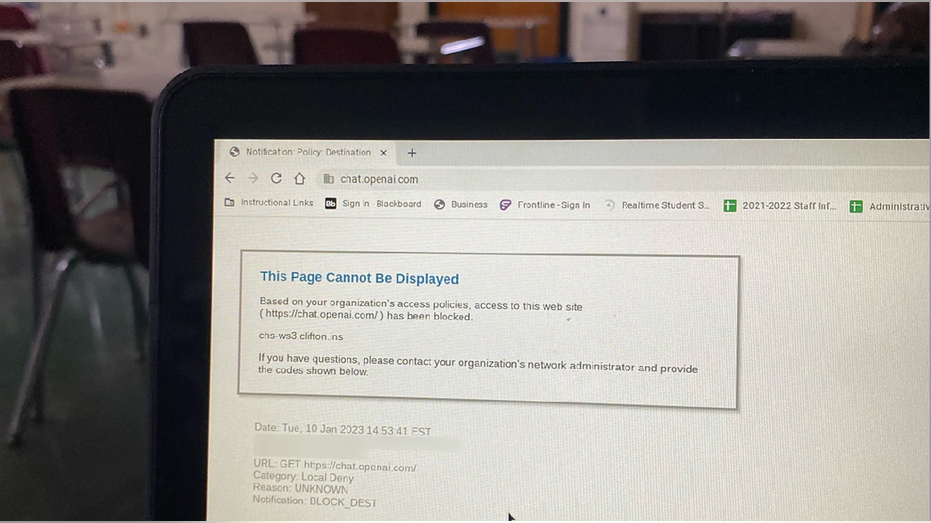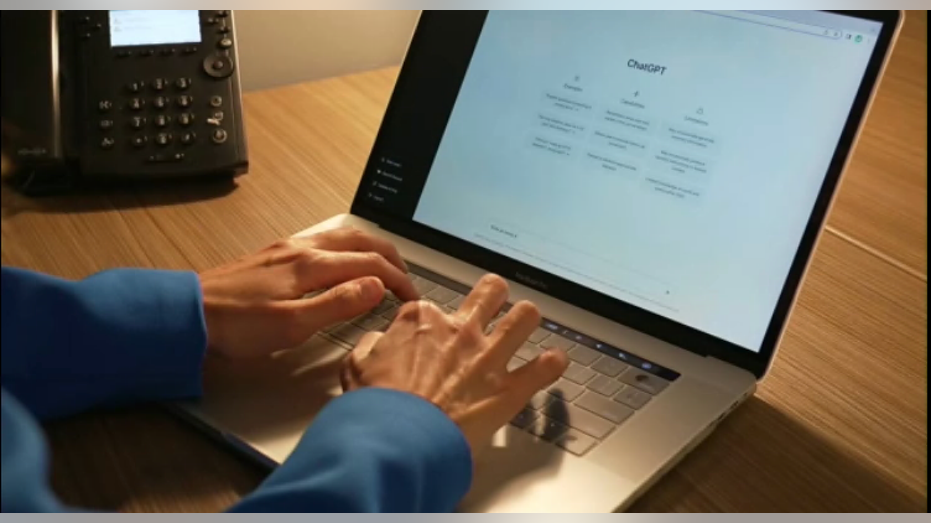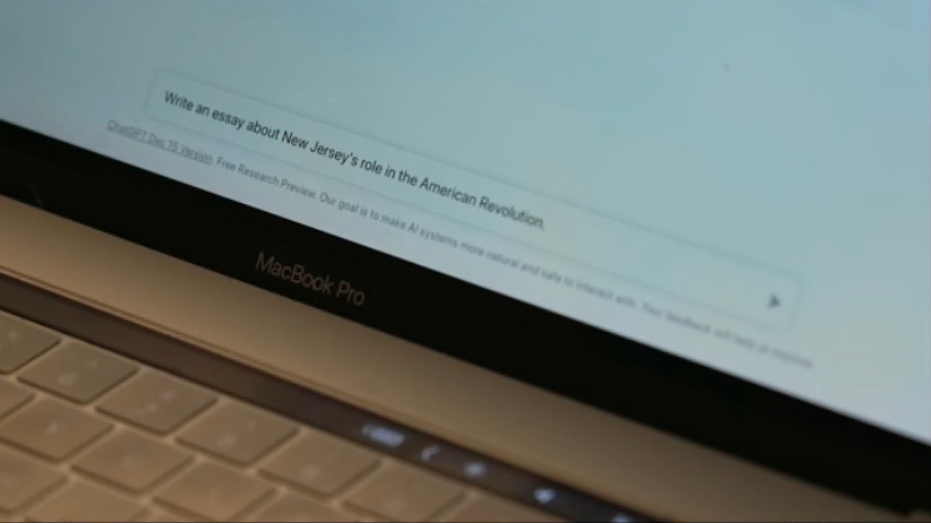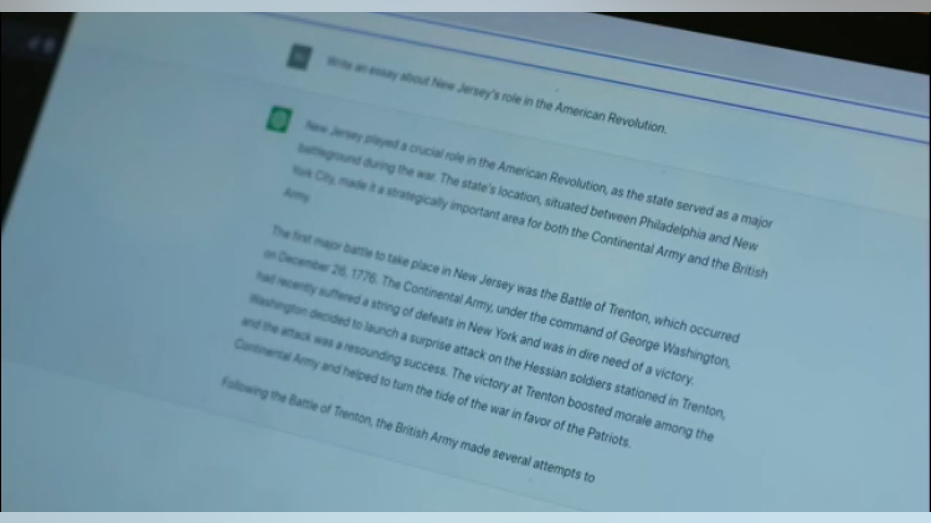School districts blocking ChatGPT amid fears of cheating, educators weigh in on AI
More school districts join Los Angeles in restricting students from accessing chatbot
Why some schools are ‘proceeding with caution’ and banning AI program ChatGPT
FOX Business’ Lydia Hu joins ‘Varney & Co.’ to discuss the artificial intelligence program ChatGPT and the decision by some school districts to ban the service on school networks and devices.
School districts are banning a new artificial intelligence-powered chatbot that can respond to prompts on demand, such as writing complex essays. The free tool powered by tech startup OpenAI is raising fears that students will use this technology to cheat.
After ChatGPT was released on Nov. 30, Los Angeles Unified District blocked students’ access to the technology on networks and devices to "protect academic honesty while a risk/benefit assignment is conducted."
"In the meantime, we will continue to provide robust and relevant training and instruction in digital citizenship and computer science education for all school communities," a Los Angeles Unified District spokesperson told FOX Business in a statement.
New York City, Baltimore County, Loudon County in Virginia and Montgomery County in Alabama are among the latest school districts to join Los Angeles in restricting students from accessing the chatbot.
Charlotte-Mecklenburg Public Schools already bans external apps from student devices but has blocked it from being downloaded and has no plans to allow student access.
New York City, the nation’s largest public school district, cited the "negative impacts on student learning" and "concerns regarding the safety and accuracy of content," as well as the impact that the technology could have on building problem-solving skills for academic and lifelong success.
Loudon County spokesperson Dan Adams told FOX Business that the Virginia schools’ staff are currently blocking ChatGPT on the network and student-assigned devices in order to "remain exemplary educators" and that they "expect the highest level of honesty" in the students’ assigned work.
Public schools in Alabama’s Montgomery County have blocked access as well, saying that they promote the use of technology for learning new information but that it "must be done responsibly, ethically and cautiously." They are working on "guidance for teachers and staff as it relates to readiness in their classrooms."
As educators weigh in on the debate about the future of AI in the classroom, some schools are taking the matters into their own hands by putting regulations and restrictions in place for now.
One public school in New Jersey is banning students from accessing it until administrators understand the program and how it could apply to curriculum.

Clifton Public Schools bans students from accessing ChatGPT on networks and devices.
"We want to make sure that our students are well-rounded, that they're not taking shortcuts," Janina Kusielewicz, assistant superintendent of curriculum and instruction for Clifton Public Schools in Clifton, New Jersey, told FOX Business. "Our teachers have to stay on top of preventing those shortcuts so that we can teach them the right way to do things and get a complete education."
Even executives from OpenAI are warning of limitations and abuse to the machine learning tool.
Sam Altman of OpenAI tweeted out last month that "it's a mistake to be relying on it for anything important right now" and that the company has "lots of work to do on robustness and truthfulness." For the meantime, it should be used for "creative inspiration" rather than factual queries, which is "not such a good idea."
Fox Business put ChatGPT to the test by asking the bot to write an essay about the American Revolution and discovered some of the technology’s limitations.

ChatGPT generating an essay about the America Revolution.

ChatGPT generating an essay about the America Revolution.
In an essay that analyzes New Jersey’s role in the American Revolution, ChatGPT wrote that the state’s capital capitol, Trenton, New Jersey, was the site where the Declaration of Independence was first read to the Continental Army on July 9, 1776. But according to the Library of Congress, the first reading to the troops happened in New York.

ChatGPT generating an essay about the America Revolution.
David White, supervisor of language arts for grades 9 through 12 at Clifton Public Schools, has concerns about how the technology could hinder the process of learning how to write.
"We write to communicate, and students need to learn how to write and to communicate clearly that way," White said. "They need to go through the process of actually writing and learning how to do it, and revising and making the writing clear and concise as possible to explain the way they're thinking."
However, the educators say that there could be potential applications for where the technology could be useful, such as being used to simplify a pre-write or as a draft to be submitted to AI for polishing.
Charles Lang, senior executive director of the Digital Futures Institute and professor at Teachers College at Columbia University, said the technology could be used to create assessments or develop skills that are specific to that software, while it could also aid those who struggle with basic skills or writing or reading.
"Just being able to personalize interactions in a way that is infinitely patient and can go on forever and talk about the same topic is actually a wildly amazing tool to have in the education system," Lang said.
The main question concerning educators, Lang said, is how to incorporate this technology into teaching and learning such that students are in a good position once they leave the school.
In the meantime, other districts are not blocking the program.
Dallas and Houston School Districts are not changing any policies related to ChatGPT and are currently evaluating tools before making a decision on how to best proceed, according to spokespersons.
Atlanta Public Schools have "no plans to ban the platform" but takes "academic integrity and plagiarism seriously and will take the appropriate steps should this become an issue."
In Chicago, the public school system has not blocked ChatGPT on school networks and said that it is committed to providing students with an educational experience that incorporates technological advances.
Like many other schools, White said they will be monitoring what other districts do and how the technology evolves.




















